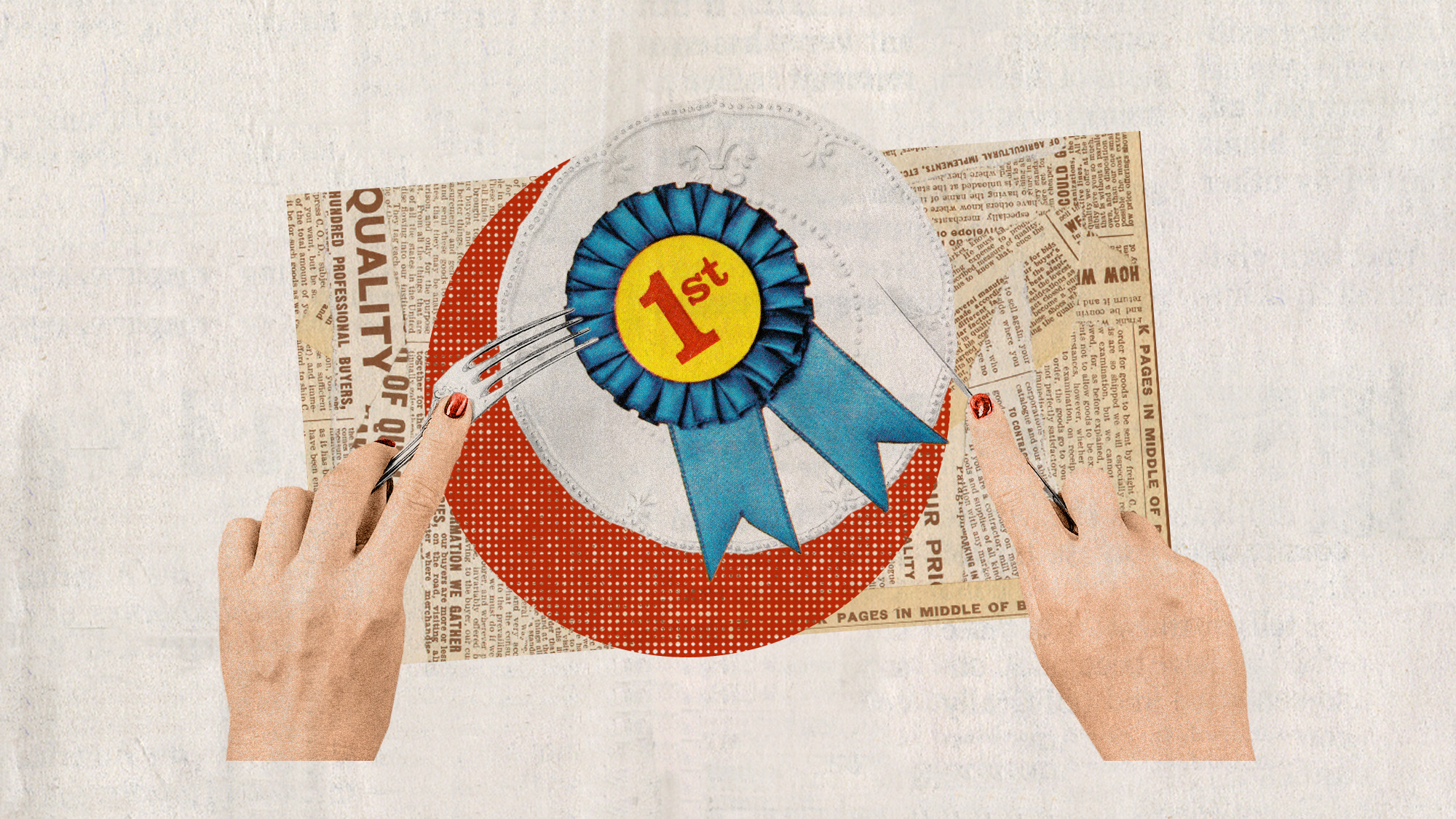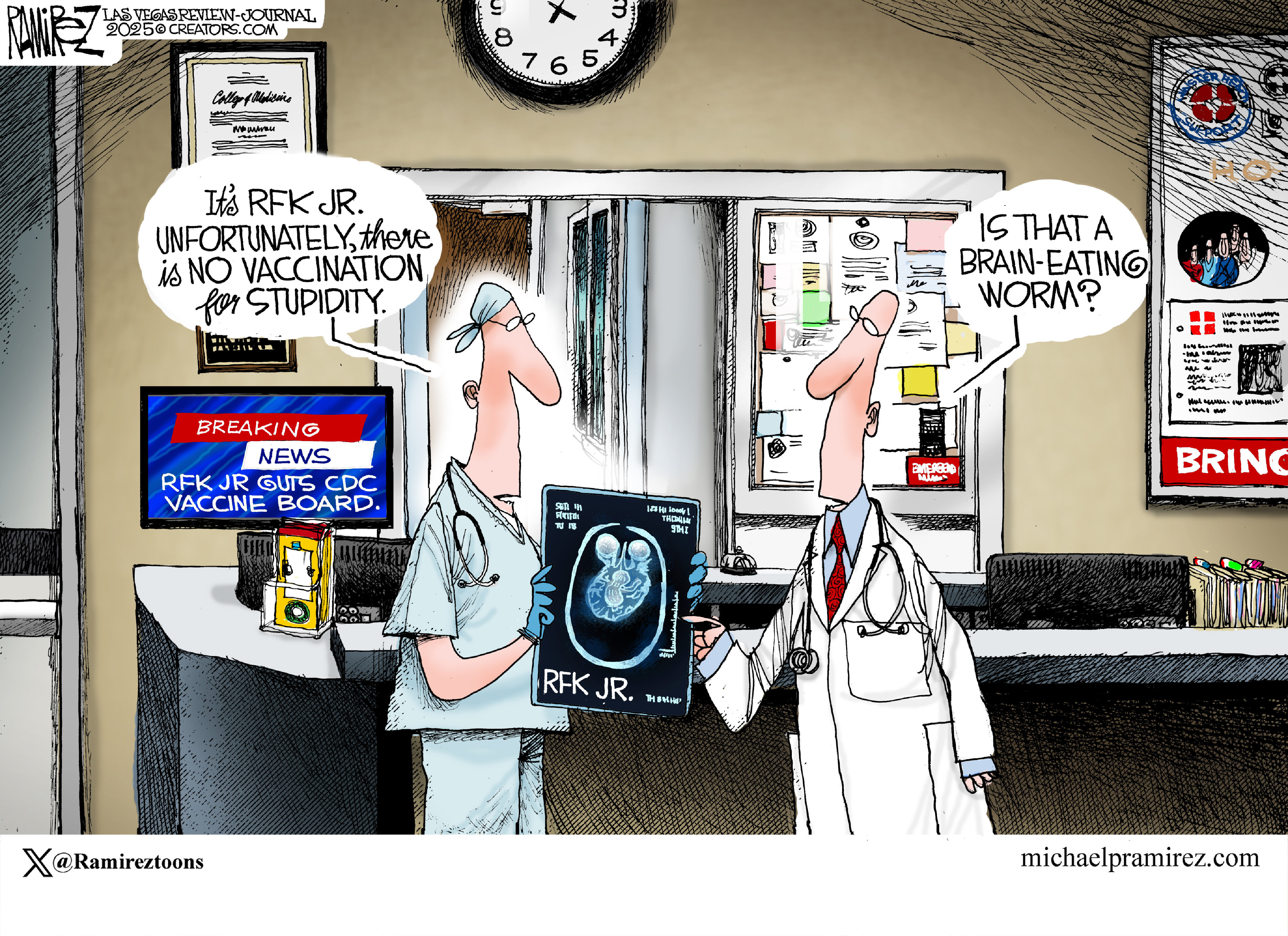The dark depths of conservative despair
Republicans say they're "losing" by a staggering margin. Here's why.


Americans like to think of themselves as winners, the ones who shape the world's history, beat back our foes, spread our culture across the globe, and come home with the gold medals. But it turns out that in politics, we may all think we're losers.
In a large survey released this week, the Pew Research Center asked respondents an unusual question: "Thinking about the way things are going in politics today, on the issues that matter to you would you say your side has been winning more often than it's been losing, or losing more often than it's been winning?" In a fascinating result, it turns out that everyone, Democrats and Republicans alike, thinks they're losing.
Actually, that's only partially true. Sixty-four percent of Americans overall said their side is losing, and Democrats said that by a margin of 52 to 40 percent. But Republicans said they're losing by a whopping 79 to 14 percent. How can we explain that?
Subscribe to The Week
Escape your echo chamber. Get the facts behind the news, plus analysis from multiple perspectives.

Sign up for The Week's Free Newsletters
From our morning news briefing to a weekly Good News Newsletter, get the best of The Week delivered directly to your inbox.
From our morning news briefing to a weekly Good News Newsletter, get the best of The Week delivered directly to your inbox.
The simplest answer would be that maybe they're right. Even if they're getting their people elected — Republicans control both houses of Congress and a majority of governorships and state legislatures — they still haven't had the White House for eight years, and their presidential primary doesn't inspire a lot of confidence that they'll be able to take it back in 2016. The presidency dominates our attention because the president does so many visible things. Republicans watched as Barack Obama passed a stimulus, Wall Street reforms, and health care reform. They shook their fists at him as he wrote new regulations to regulate greenhouse emissions, tried to let "dreamers" stay in the country legally, and enacted a foreign policy with a disappointing dearth of invasions. They were gobsmacked by the very fact that he got re-elected.
Then there are social issues, where conservatives have been watching the country pass them by. Yes, they've been able to make it somewhere between difficult and impossible to get an abortion in much of the country. But the Supreme Court legalized gay marriage and popular culture is filled with sex — you can even say "shit" on TV now.
Cultural conservatives have taken those developments and turned them into a story of their victimhood, one in which they're an oppressed minority constantly besieged by a culture that has not only rejected their values but actively seeks to oppress them. Many of them sincerely believe that in this majority-Christian country, being Christian is an act of courageous rebellion, even heroism. Even if they know they're right, though, they don't think they're winning.
But it's more than that. You have to appreciate the role of partisan media, which plays a much larger part in building the right's worldview than it does the left's. Especially when there's a Democratic president — but even when there isn't — conservative media is a parade of horrors, a constant litany of things you're supposed to be outraged about. Obama and the liberals are destroying America, virtue is on the wane, your kids are smoking pot and having sex, there's a war on Christmas, and racism against black people has been replaced by vicious racism against white people (in one recent poll, 64 percent of Republicans said that racism against whites is as much a problem as racism against blacks). That's not to mention the fact that the perfidy and fecklessness of Republican leaders has been one of the prime themes in conservative media over the last few years, so even when their party is winning, conservatives are told they're losing.
Media figures like Rush Limbaugh or Bill O'Reilly who are so popular on the right don't specialize in good news, because good news isn't "hot" in the same way that anger and outrage are. And that's true in politics, too: Fear and anger are much more powerful motivators than hope (which is what made Obama's campaign in 2008 so unusual).
Not only that, there's a whole industry of interest groups in Washington devoted to getting people mad about the things they think are wrong with the government or the country. That's how they raise money, win new members, and choose what to campaign on. It's only natural that they focus on problems that need to be solved — few people will donate money to spread the word that things are going well — but if you're getting a stream of emails saying, "Give us $50 so we can stop the government from destroying your way of life," it's easy to conclude that maybe your way of life is being destroyed.
All that is on top of our natural human propensity to pay closer attention to negative information than positive information. Social researchers have found that tendency in a wide variety of situations. From an evolutionary perspective, it makes perfect sense: Had our ancestors overlooked a tasty berry bush, they might have gone hungry for an afternoon, but if they overlooked what appeared to be a saber-toothed tiger crouching behind it, they wouldn't be passing on their genes.
So the losses loom large for us all — we perseverate on them, we remember them, and we're motivated to act by them. And that makes us more likely to believe that things are going against us, even when it may not be true.
Sign up for Today's Best Articles in your inbox
A free daily email with the biggest news stories of the day – and the best features from TheWeek.com
Paul Waldman is a senior writer with The American Prospect magazine and a blogger for The Washington Post. His writing has appeared in dozens of newspapers, magazines, and web sites, and he is the author or co-author of four books on media and politics.
-
 The battle to be named the world's oldest restaurant
The battle to be named the world's oldest restaurantUnder The Radar Two Madrid restaurants dispute the historical record but could both of their claims be cooked?
-
 June 15 editorial cartoons
June 15 editorial cartoonsCartoons Sunday's political cartoons include FEMA folding, a Father's Day card for Elon Musk, and new lyrics to the "Marines' Hymn"
-
 5 worm-ridden cartoons about RFK. Jr and the CDC
5 worm-ridden cartoons about RFK. Jr and the CDCCartoons Artists take on vaccine advisers, medical quackery, and more
-
 The JFK files: the truth at last?
The JFK files: the truth at last?In The Spotlight More than 64,000 previously classified documents relating the 1963 assassination of John F. Kennedy have been released by the Trump administration
-
 'Seriously, not literally': how should the world take Donald Trump?
'Seriously, not literally': how should the world take Donald Trump?Today's big question White House rhetoric and reality look likely to become increasingly blurred
-
 Will Trump's 'madman' strategy pay off?
Will Trump's 'madman' strategy pay off?Today's Big Question Incoming US president likes to seem unpredictable but, this time round, world leaders could be wise to his playbook
-
 Democrats vs. Republicans: who are the billionaires backing?
Democrats vs. Republicans: who are the billionaires backing?The Explainer Younger tech titans join 'boys' club throwing money and support' behind President Trump, while older plutocrats quietly rebuke new administration
-
 US election: where things stand with one week to go
US election: where things stand with one week to goThe Explainer Harris' lead in the polls has been narrowing in Trump's favour, but her campaign remains 'cautiously optimistic'
-
 Is Trump okay?
Is Trump okay?Today's Big Question Former president's mental fitness and alleged cognitive decline firmly back in the spotlight after 'bizarre' town hall event
-
 The life and times of Kamala Harris
The life and times of Kamala HarrisThe Explainer The vice-president is narrowly leading the race to become the next US president. How did she get to where she is now?
-
 Will 'weirdly civil' VP debate move dial in US election?
Will 'weirdly civil' VP debate move dial in US election?Today's Big Question 'Diametrically opposed' candidates showed 'a lot of commonality' on some issues, but offered competing visions for America's future and democracy
